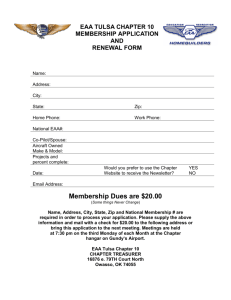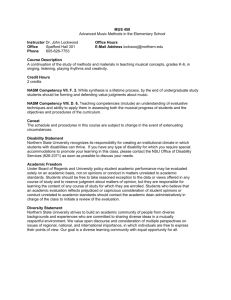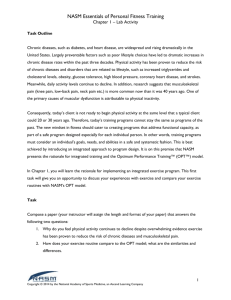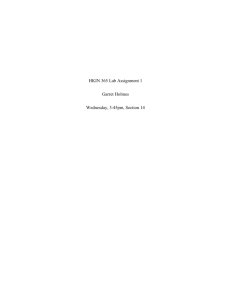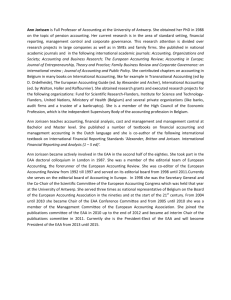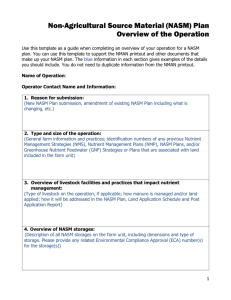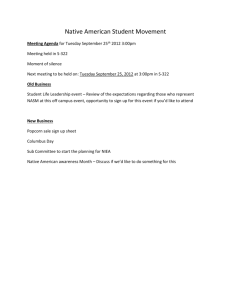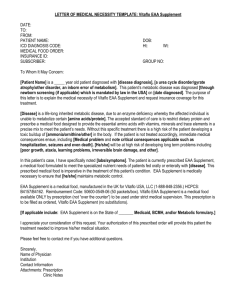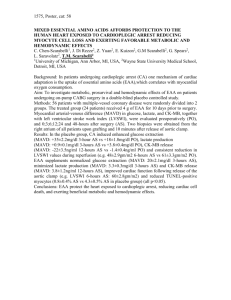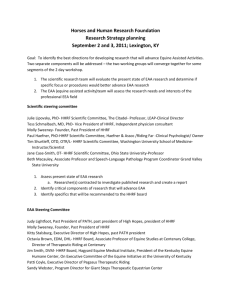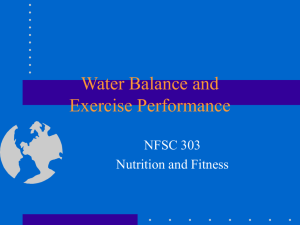Nutrition for Improved Performance
advertisement
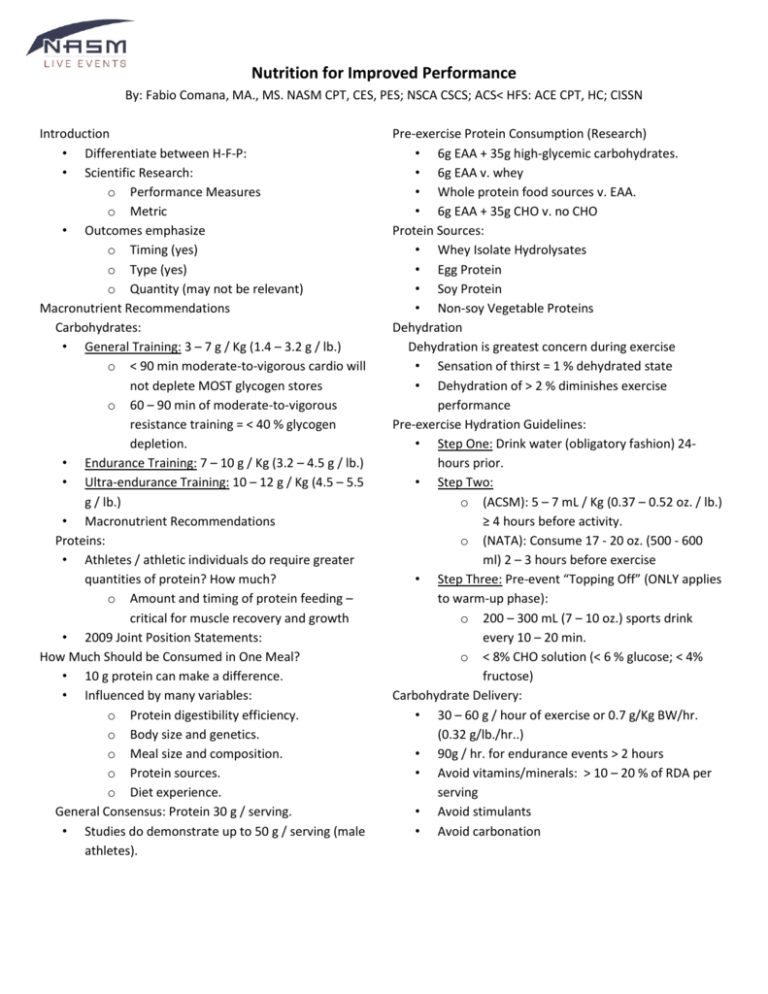
Nutrition for Improved Performance By: Fabio Comana, MA., MS. NASM CPT, CES, PES; NSCA CSCS; ACS< HFS: ACE CPT, HC; CISSN Introduction • Differentiate between H-F-P: • Scientific Research: o Performance Measures o Metric • Outcomes emphasize o Timing (yes) o Type (yes) o Quantity (may not be relevant) Macronutrient Recommendations Carbohydrates: • General Training: 3 – 7 g / Kg (1.4 – 3.2 g / lb.) o < 90 min moderate-to-vigorous cardio will not deplete MOST glycogen stores o 60 – 90 min of moderate-to-vigorous resistance training = < 40 % glycogen depletion. • Endurance Training: 7 – 10 g / Kg (3.2 – 4.5 g / lb.) • Ultra-endurance Training: 10 – 12 g / Kg (4.5 – 5.5 g / lb.) • Macronutrient Recommendations Proteins: • Athletes / athletic individuals do require greater quantities of protein? How much? o Amount and timing of protein feeding – critical for muscle recovery and growth • 2009 Joint Position Statements: How Much Should be Consumed in One Meal? • 10 g protein can make a difference. • Influenced by many variables: o Protein digestibility efficiency. o Body size and genetics. o Meal size and composition. o Protein sources. o Diet experience. General Consensus: Protein 30 g / serving. • Studies do demonstrate up to 50 g / serving (male athletes). Pre-exercise Protein Consumption (Research) • 6g EAA + 35g high-glycemic carbohydrates. • 6g EAA v. whey • Whole protein food sources v. EAA. • 6g EAA + 35g CHO v. no CHO Protein Sources: • Whey Isolate Hydrolysates • Egg Protein • Soy Protein • Non-soy Vegetable Proteins Dehydration Dehydration is greatest concern during exercise • Sensation of thirst = 1 % dehydrated state • Dehydration of > 2 % diminishes exercise performance Pre-exercise Hydration Guidelines: • Step One: Drink water (obligatory fashion) 24hours prior. • Step Two: o (ACSM): 5 – 7 mL / Kg (0.37 – 0.52 oz. / lb.) ≥ 4 hours before activity. o (NATA): Consume 17 - 20 oz. (500 - 600 ml) 2 – 3 hours before exercise • Step Three: Pre-event “Topping Off” (ONLY applies to warm-up phase): o 200 – 300 mL (7 – 10 oz.) sports drink every 10 – 20 min. o < 8% CHO solution (< 6 % glucose; < 4% fructose) Carbohydrate Delivery: • 30 – 60 g / hour of exercise or 0.7 g/Kg BW/hr. (0.32 g/lb./hr..) • 90g / hr. for endurance events > 2 hours • Avoid vitamins/minerals: > 10 – 20 % of RDA per serving • Avoid stimulants • Avoid carbonation Post-exercise Goals: • Rehydration - MOST critical. • Caloric Replacement (athletes) • Protein Synthesis • Glycogen Re-synthesis. Goal #1: Rehydration • Fluid requirement = pre-exercise weight - postexercise • Urine volume must be accounted for, therefore weigh yourself after going to the bathroom (voiding) before and after exercise. Post-exercise Rehydration • Goal: Expedite rehydration - consider volume threshold. o ~ 700 mL (23.7 oz.) + normal GE rates (30 – 40 mL/min) Goal #2: Glycogen Replacement Goal #3: Building Muscle • Consensus: No difference between 20 and 40 g, suggesting threshold level; but 10g makes a difference o Alternative Guideline: high-quality protein (0.4 – 0.5 g/Kg or 0.18 - 0.22 g/lb.) of LBM. Story of Chocolate Milk: • Follows rations presented above (4:1 ratio) • 8 oz. serving = 28 g sugar + 7 g protein Contact Information • Fabio Comana – Fabio.comana@nasm.org Additional Professional Opportunities • Visit NASM booth for more product information or to enroll in one of our programs today or visit us online at www.nasm.org/credentials
